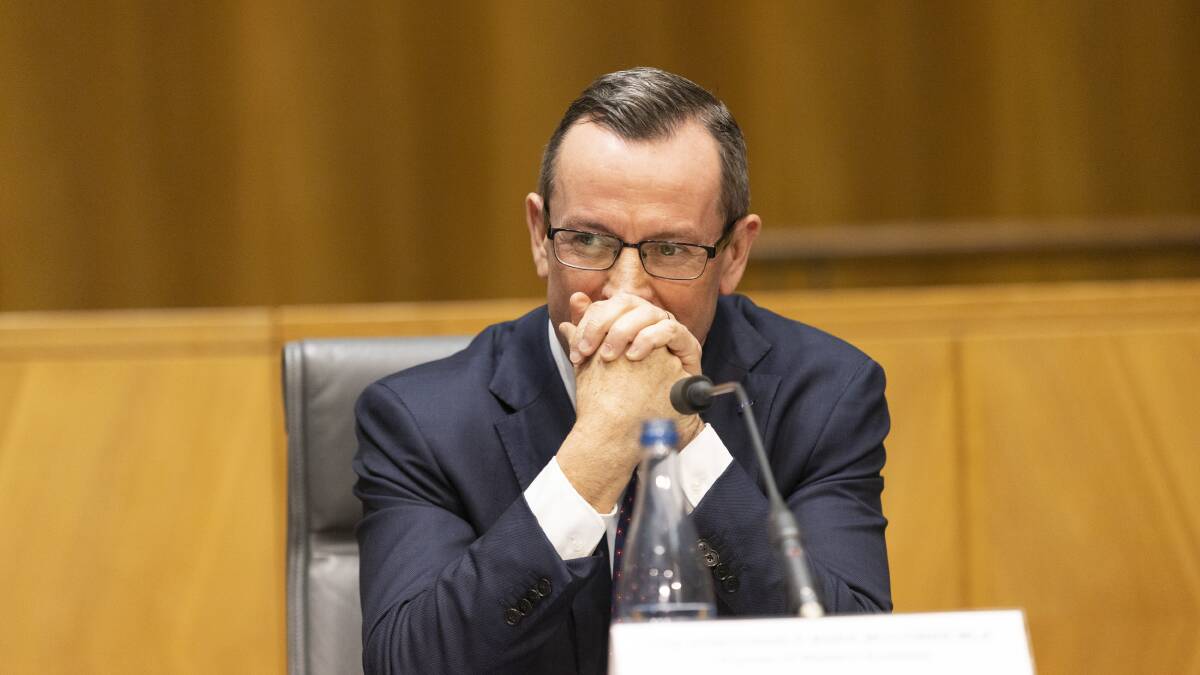Remember Greg Combet? Anyhow, good bloke, chucked in federal politics at the 2013 election and got himself a life. I'm pretty sure everyone loved him and even considered him a future prime minister. Smart, kind, firm, organised.
A few years later, a bloke called Tim Hammond, a West Australian also considered to be part of the future of federal Labor, also departed. He too had no reason to go, no political reason anyhow. Turns out that he really did want to spend more time with his babies.
Now Hammond is a successful senior counsel in Western Australia and says he has never regretted his decision, not for one minute. And one night, about two years into his tenure as the member for the seat of Perth, he realised while his kids hated him leaving for so long for so often, he hated it even more. Nothing had prepared him for the anguish of separation.

"The absence became unbearable in terms of preserving my family," he says now, five years out from leaving federal politics.
His decision to leave politics was met with mixed reception - from those who got it to those who thought he was doing the wrong thing.
Mostly people - politicians - who say they want to spend more time with their families really want to spend less time under scrutiny. A bombshell is coming their way, maybe a dumping. For those leaving for genuine reasons, it takes willpower to leave power.
And this year, we've had a positive stampede of politicians in top form running for the exits. We saw New Zealand's Jacinda Ardern make a decision to leave. Scotland's Nicola Sturgeon. Peter Gutwein left the Tasmanian premiership over a year ago. The Northern Territory's Michael Gunner about the same time. In other major resignations, Kochie on Monday, in the shadow of State Daddy, otherwise known as Mark McGowan, the premier of Western Australia, who said he was exhausted.
"The truth is I'm tired, extremely tired. In fact, I'm exhausted," he said. He now has plans to coach AFL as if that's a peaceful gig. Joke.
I have never lived in Western Australia but briefly visited between Barbecue Guy and Limosine Driver.
It was peak pandemic and this was one hot minute when WA's borders were porous. And at a time when everyone was railing against border closures, people I spoke to during my brief holiday loved McGowan. Utterly weird. We as a people do not really like politicians of any kind - but this was a bloke who had popularity ratings in the near 90s. Wild.
So why do people like this leave power at the height of their powers? Business academic at Western Sydney University Ann Dadich and colleagues Ataus Samad and Khalil Al Jerjawi embarked on research to discover how political leadership manages a crisis.
They interviewed premiers, senators and others on what happened during COVID, what it was like to have to make really vital decisions while the information changed rapidly: the confusion, the uncertainty, the social media news cycle, the sheer bloody-minded relentlessness of it all.
Having to be available for everything to everyone all at once.
But what the researchers discovered after trawling through the data was this, there were key attributes the politicians felt they needed to have, or were expected to have.
They not only had to be visionary in their approach but also had to be able to articulate that vision to a broad audience. First bit hard enough. Then leaders needed to be able to empathise. Author of Head and Heart: The Art of Modern Leadership, Kirstin Ferguson, has this caution: "It seems counterintuitive to think of empathy as anything other than a positive in leaders. But the reality is expending too much emotional empathy, and over an extended period, can be overwhelming."
READ MORE:
And sometimes empathy might have been in direct competition with another attribute: courage. Let's face it, it must have been hard for politicians to make some of the necessary decisions when they knew that half of the constituents would be furious and/or hurt. On top of that, you had to be calm, inspirational, ethical, authentic, resilient and display emotional intelligence.
"There is no universal understanding of what good leadership looks like," says Dadich.
"And there is a lot of responsibility. By placing the onus on individuals, burnout is a real factor here. This is relentless and there is only so much individuals can take."
The nightmare of overwhelming expectation. Not sure how anyone can be a politician with all that on your plate.
Dadich says this model we have for leadership isn't sustainable - particularly since we've seen the intensity and challenge of leading through the COVID crisis - and she says other crises are bound to follow. If it's not a pandemic, then it's climate. Maybe crisis will be the new normal.
"We have to think about other ways of leading," she says. "Maybe something done not by one person but by a collective."
Otherwise the occasional exit might become a mass escape.
Thing is, the politicians who get to say goodbye on their own terms, these are the lucky ones. They get to call time on their responsibilities and mostly, we clap and say, "well done, you champions. Good on you, wouldn't want to be you".
And the fact is, we all lead in our own way. We lead at home, we lead at work. We all have pressures. But I can't think of a single person who didn't find the pandemic challenging, who wouldn't now say, "I need a break" and we don't have the wherewithal to be able to do that.
We don't get to say we've had enough. Maybe we will recover anyway because we don't have that excruciating time in the spotlight.
Maybe.
- Jenna Price is a regular columnist and a visiting fellow at the Australian National University.


